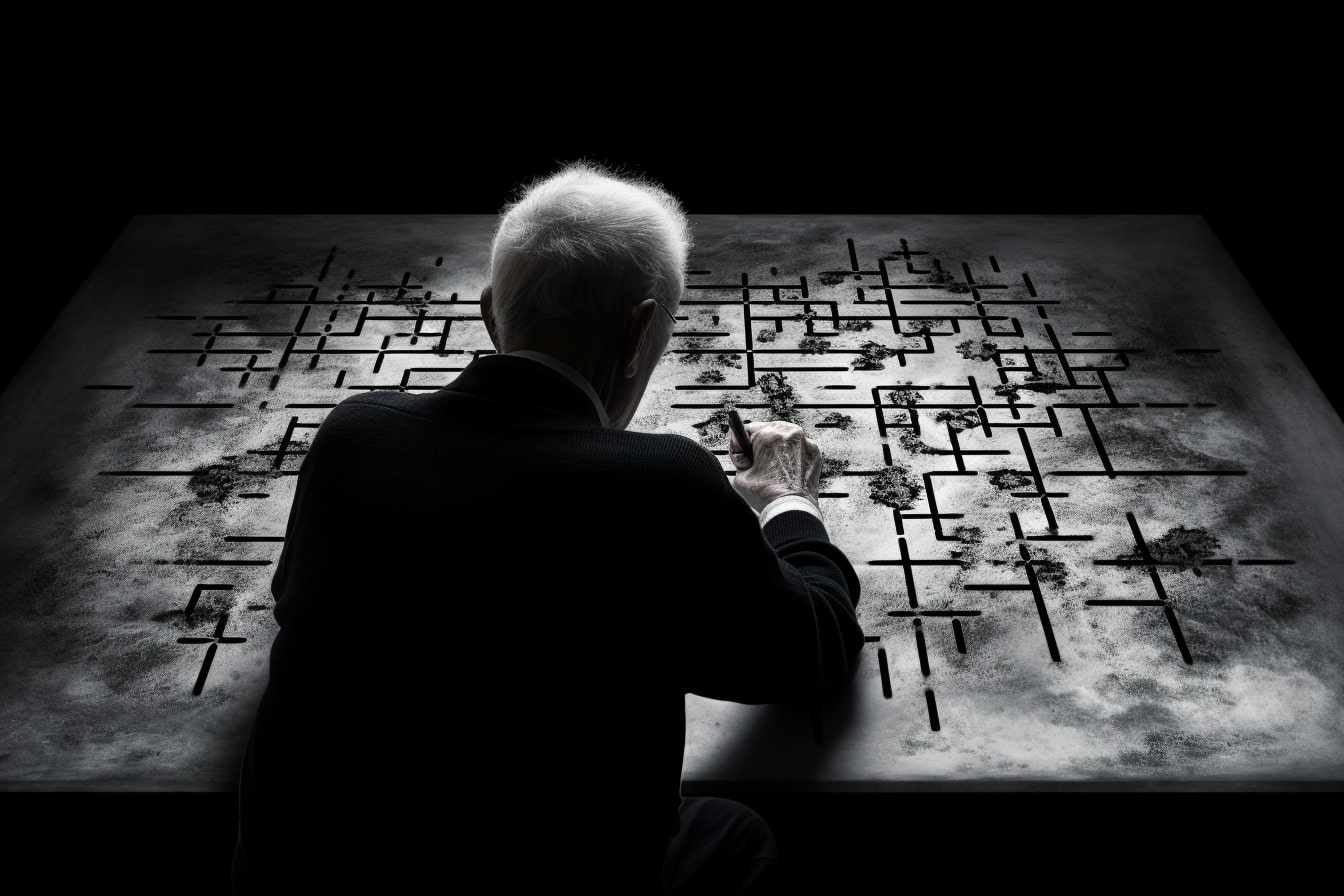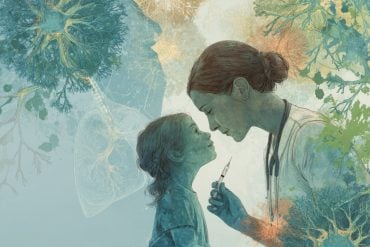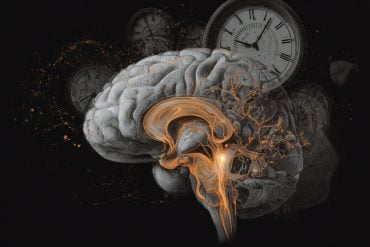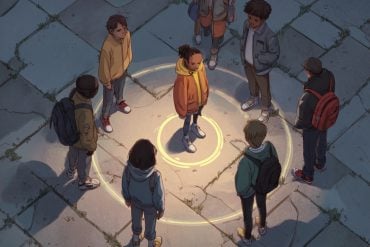Summary: A recent study indicates that engaging in mental acuity tasks can potentially decrease dementia risk more than social activities or creative hobbies.
By analyzing data from 10,318 Australian adults aged 70 and above, researchers found that those who regularly participated in literacy activities and mind-challenging tasks were 9-11 percent less likely to develop dementia. Creative hobbies and more passive activities, like reading, only reduced dementia risk by 7 percent.
The study underlines the importance of active mental stimulation in reducing dementia risk in older adults.
Key Facts:
- The study utilized data from over 10,000 Australian adults aged 70 and older.
- Those engaging regularly in mental acuity tasks were 9-11% less likely to develop dementia.
- Social activities and creative hobbies had a lesser impact on reducing dementia risk.
Source: Monash University
Computer use, crosswords and games like chess are more strongly associated with older people avoiding dementia than knitting, painting or socializing, a Monash University study has found.
Published in JAMA Network Open, the findings—some of the most robust on this topic to date—may help older individuals and aged care professionals plan more targeted approaches to reducing dementia risk.

Researchers drew data from 10,318 Australians aged 70 and older participating in the ASPREE project and the ALSOP (ASPREE Longitudinal Study of Older Persons) sub-study.
They found that participants who routinely engaged in adult literacy and mental acuity tasks such as education classes, keeping journals, and doing crosswords were 9-11 percent less likely to develop dementia than their peers.
Creative hobbies like crafting, knitting and painting, and more passive activities like reading reduced the risk by 7 percent. In contrast, the size of someone’s social network and the frequency of external outings to the cinema or restaurant were not associated with dementia risk reduction.
The results remained statistically significant even when adjusted for earlier education level, and socioeconomic status. No significant variations were found between men and women.
In 2022, 55 million people globally lived with dementia, with 10 million new cases each year.
Senior author Associate Professor Joanne Ryan, from the School of Public Health and Preventive Medicine, said identifying strategies to prevent or delay dementia was a huge global priority.
“We had a unique opportunity to close a gap in knowledge by investigating a broad range of lifestyle enrichment activities that older adults often undertake, and assess which of those were most strongly aligned with avoiding dementia,” Associate Professor Ryan said.
“I think what our results tell us is that active manipulation of previously stored knowledge may play a greater role in dementia risk reduction than more passive recreational activities. Keeping the mind active and challenged may be particularly important.”
The leisure activities assessed encompassed:
- adult literacy activities such as adult education classes, using computers, keeping a journal
- mental acuity tasks like completing quizzes and crosswords, playing cards/chess
- creative hobbies like woodworking, knitting or painting
- more passive activities like keeping up with the news, reading or listening to music
- social network activities like meeting and interacting with friends
- planned excursions such as going to a restaurant, museum or the cinema.
Associate Professor Ryan said the results did not rule out that those naturally drawn to the types of leisure activities linked to cognitive health also had specific personality traits that were otherwise beneficial, or they may generally have had better health behaviors.
“While engaging in literacy and mental acuity activities may not be a magic pill to avoid dementia, if that was your goal and you had to choose, our research certainly suggests these are the activities most likely to support prolonged good cognitive health,” she said.
Associate Professor Ryan said social connection may also still be quite important to cognitive health and mental well-being, even though it did not show a clear link with dementia risk in the study.
“The participants were cognitively healthy, and were likely already leading socially active lives, such that the cognitive benefits of strong social networks may be less obvious in this group compared to the general public,” she said.
About this cognition and dementia research news
Author: Joanne Ryan
Source: Monash University
Contact: Joanne Ryan – Monash University
Image: The image is credited to Neuroscience News
Original Research: Open access.
“Lifestyle Enrichment in Later Life and Its Association With Dementia Risk” by Joanne Ryan et al. JAMA Network Open
Abstract
Lifestyle Enrichment in Later Life and Its Association With Dementia Risk
Importance
Lifestyles enriched with socially and mentally stimulating activities in older age may help build cognitive reserve and reduce dementia risk.
Objective
To investigate the association of leisure activities and social networks with dementia risk among older individuals.
Design, Setting, and Participants
This longitudinal prospective cohort study used population-based data from the ASPREE Longitudinal Study of Older Persons (ALSOP) for March 1, 2010, to November 30, 2020. Community-dwelling individuals in Australia aged 70 years or older who were generally healthy and without major cognitive impairment at enrollment were recruited to the ALSOP study between March 1, 2010, and December 31, 2014. Data were analyzed from December 1, 2022, to March 31, 2023.
Exposures
A total of 19 measures of leisure activities and social networks assessed at baseline were classified using exploratory factor analysis.
Main Outcomes and Measures
Dementia was adjudicated by an international expert panel according to Diagnostic and Statistical Manual of Mental Disorders (Fourth Edition) criteria. Cox proportional hazards regression examined dementia risk over 10 years, adjusting for education, socioeconomic status, and a range of health-related factors.
Results
This study included 10 318 participants. Their median age was 73.8 (IQR, 71.6-77.2) years at baseline, more than half (52.6%) were women, and most self-identified as White (98.0%). In adusted analyses, more frequent engagement in adult literacy activities (eg, writing letters or journaling, using a computer, and taking education classes) and in active mental activities (eg, playing games, cards, or chess and doing crosswords or puzzles) was associated with an 11.0% (adjusted hazard ratio [AHR], 0.89 [95% CI, 0.85-0.93]) and a 9.0% (AHR, 0.91 [95% CI, 0.87-0.95]) lower risk of dementia, respectively. To a lesser extent, engagement in creative artistic activities (craftwork, woodwork, or metalwork and painting or drawing) (AHR, 0.93 [95% CI, 0.88-0.99]) and in passive mental activities (reading books, newspapers, or magazines; watching television; and listening to music or the radio) (AHR, 0.93 [95% CI, 0.86-0.99]) was also associated with reduced dementia risk. In contrast, interpersonal networks, social activities, and external outings were not associated with dementia risk in this sample.
Conclusions and Relevance
These results suggest that engagement in adult literacy, creative art, and active and passive mental activities may help reduce dementia risk in late life. In addition, these findings may guide policies for geriatric care and interventions targeting dementia prevention for older adults.







